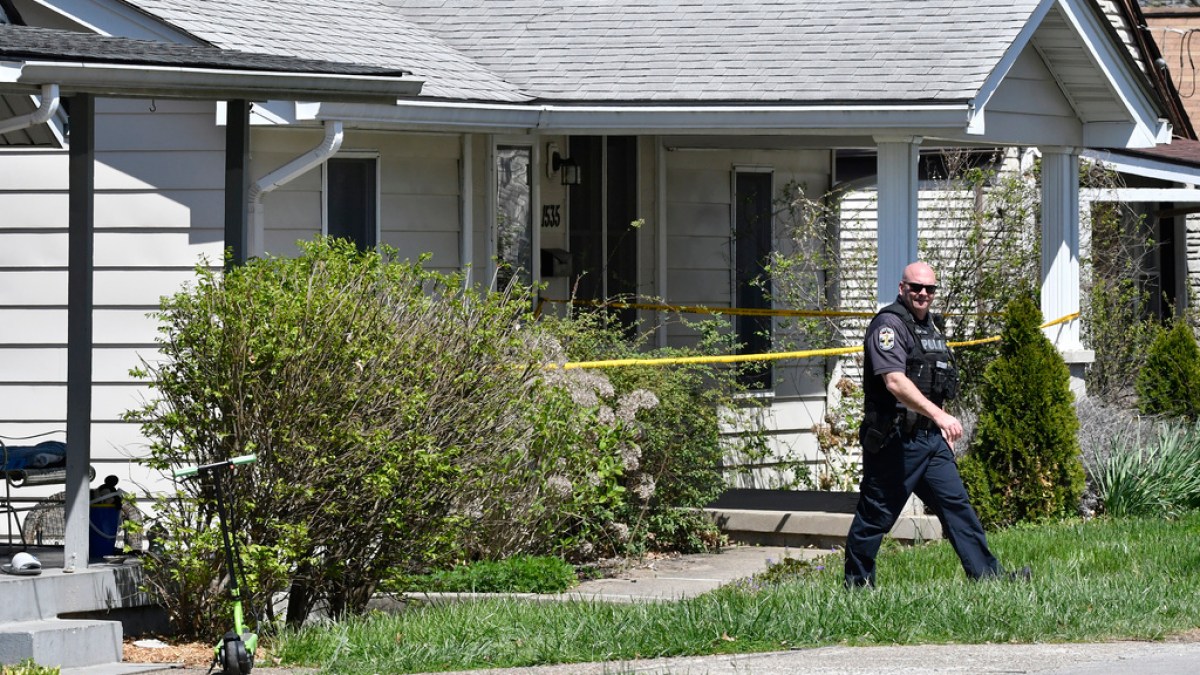Zimbabwe: By-elections provide ‘hint of what is to come’ in 2023 | News
Epworth, Zimbabwe – On Thursday at an open field in Epworth,17km (11 miles) outside the Zimbabwean capital Harare, a crowd of people in yellow T-shirts and caps waved flags emblazoned with the youthful face of Zimbabwe’s opposition leader, Nelson Chamisa.
Some raised their index finger, the symbol of the new party, the Citizens Coalition for Change (CCC). Hundreds stood along the narrow tarred road leading to the venue in Epworth, a densely populated residential area.
Luke Chibvuri, 36, a motor mechanic, was among others forced to seek shelter under the shade of surrounding trees across the road, from the midday sun. “I came here at 8am with the other guys from my area,” he said.
This weekend, Zimbabweans will cast votes in parliamentary and local government by-elections, an event seen as a forerunner to next year’s presidential elections.
Three-quarters of the country’s 270 legislators are elected into office. A tenth of those seats are up for grabs on Saturday, as well as five percent of the 1,958 local government council seats.
A hint of what to expect
Already the Zimbabwe African National Union-Patriotic Front (ZANU-PF) controls parliament with a two-thirds majority after winning 145 seats from the available 210 seats in the August 2018 elections. Saturday’s election will not change that but will instead provide important electoral data and a hint of what to expect in next year’s presidential polls.
After the February 2018 death of longtime opposition figure Morgan Tsvangirai, Chamisa, one of its three vice-presidents of the leading opposition party, the Movement for Democratic Change (MDC), succeeded him. But he eventually lost control of the party after a legal battle.
This January, he launched the CCC.
Those decisions led to the MDC’s controversial recall of some legislators on its party ticket by one of the post-Tsvangirai factions. Other seats are those left vacant after the death of the elected officials in other constituencies.
Chamisa has become the face of a citizenry repeatedly frustrated by the policies of the ruling ZANU-PF which has been in power since the country’s independence in 1980.
The southern African country is in the grips of an economic crisis characterised by high inflation that has eroded purchasing power and led to foreign currency shortages, unemployment of more than 90 percent and low manufacturing capacity.
Its currency is also in free-fall against the US dollar; in December 2016, when the new Zimbabwean dollar was introduced, it was pegged at ZWL 1: $1, but it now trading at ZWL 220 to a dollar.
Harare-based political scientist Rashwit Mukumdu said the by-elections will be an indicator of how next year’s presidential election will play out.
“These elections are a precursor or an indicator of how the actual election will be next year,” Mukumdu said. “It will reveal the level of inroads ZANU-PF has made in urban constituencies where the opposition enjoys key support and vice versa for the opposition, and we will see if they have made inroads with rural voters where the ruling party enjoys support.”
‘A suitability test’
CCC deputy national party spokesperson Ostallos Siziba says the election will help assess the party’s own readiness for polls and also test the capacity of the Zimbabwe Electoral Commission (ZEC) to “conduct elections credibly, professionally, constitutionally, transparently and accountably”.
“It’s a referendum on ZEC, a suitability test,” he added. “The barometer of readiness.”
But the campaign trail has not been an easy one for the opposition. Several rallies were banned by the police while its rival, the ruling ZANU-PF party, was allowed to address its supporters freely countrywide.
Late on Wednesday, Chibvuri, like many others, got news via a WhatsApp group that the Zimbabwean police had banned the political gathering because it had “no adequate manpower” to cover it. In the morning, opposition supporters still headed to the venue.
“We want to hear what Chamisa wants to say and why they don’t want us to hear what he has to say,” Chibvuri told Al Jazeera.
In a country where the police regularly and indiscriminately assault such gatherings, defying police orders is often seen as an invitation to assault by the anti-riot squad.
Over the years, the country’s police have interrupted opposition gatherings or refused permission for them, citing what CCC officials say are frivolous reasons. On the other hand, the ruling party’s gatherings often go on unhindered.
A few weeks ago, a CCC member died in a central Zimbabwean town after he was stabbed with a spear on his way to a CCC rally. in February, 37 of its supporters were arrested at a rally.
Still, CCC supporters turned up at Epworth.
‘History repeating itself’
The ruling ZANU-PF administration has also been accused of rigging elections in the last three decades with the help of state institutions such as the Registrar General’s office that registers voters and compiles the voters’ roll, and the ZEC.
ZANU-PF spokesperson Tafadzwa Mugwadi denied the allegations, saying “ZEC is independent of ZANU-PF, the opposition and civil society”.
“The allegation that we use ZEC to rig elections is neither here nor there,” Mugwadi told Al Jazeera Friday morning.
“In any case, we have no record ever of elections being rigged in this country. What we have are useless lamentations from the losing opposition who don’t accept the outcome of elections time and again.”
In line with electoral rules, parties to an election have a right to inspect the voters’ roll before an election. But the opposition said on Thursday that it was yet to receive the roll, two days to the election.
Tendai Biti, a top CCC official and candidate in the Saturday polls, tweeted his frustration.
It is a travesty that with two days to go to the by election #ZECzim has refused to avail political parties and candidates with the voters roll it will use on Saturday . The truth of the matter is that #ZECzim is captured and must be disbandedIt is but a mere extension of #ZANU pic.twitter.com/qOjfR6YtHD
— TENDAI BITI (@BitiTendai) March 23, 2022
The voters’ roll aside, CCC says its campaign trail has been fraught with many impediments from its rivals such as violence and intimidation.
Siziba said ZANU-PF was merely taking a leaf from Ian Smith’s political playbook. Smith was the colonial prime minister who declared independence from the UK, ruled the country with an iron fist and pledged not to give freedom to African nationalist movements.
” I think what ZANU-PF is doing is simply history repeating itself,” Siziba told Al Jazeera.
Siziba also accused the ZANU-PF administration of making the police an extension of the ruling party. He said the police went around Masvingo, southern Zimbabwe, in Israeli-made tanks with poisoned water and batons, intimidating residents.
But he added that the intimidation has made its supporters even more determined to usher in a new era. “This is the final push and the people are not afraid now. Just like revolution generation, we are prepared to die,” Siziba said.




